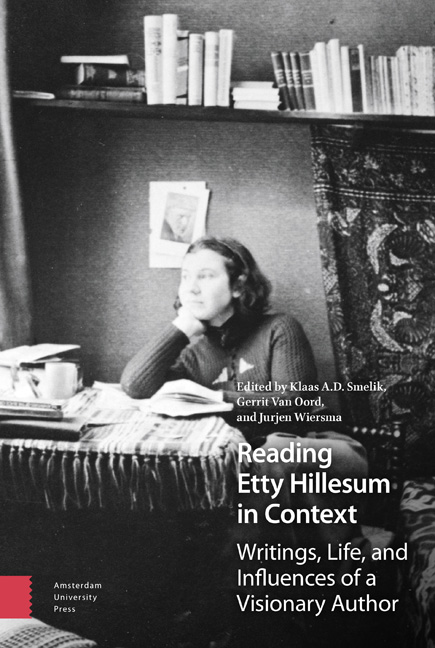12 - Etty Hillesum, A Devoted Student of Julius Spier
Summary
Abstract
When Etty Hillesum had her hands analyzed by the psychochirologist, Julius Spier, she was deeply impressed by what Spier was able to tell her about herself. Soon after, Hillesum began counselling with Spier and enrolled in his course on Psychochirology. Until Hillesum was assigned a position at the Joodsche Raad, she devoted a substantial amount of time to the art of reading hands. This essay highlights a series of events to show that Hillesum tried to follow Spier's footsteps and was well on her way to becoming a hand-reading psychologist herself.
Keywords: Julius Spier, psychochirology, palmistry, Etty Hillesum
It is well known that Etty Hillesum was a patient and student of the hand reader Julius Spier, and that she became his secretary and lover as well. As Spier's patient, Hillesum was having private, therapeutic consultations with him; as his student, she participated in the course psychochirology, the lessons Spier offered in which he taught others how to analyze hands; and as his secretary, she typed out the letters Spier dictated to her, and took notes during group sessions and private sessions of those who had their hands studied. Moreover, Hillesum read the diary notes of individuals who were having a series of sessions with the hand-reading psychotherapist, and talked with him about patients.
Even though these facts are well known, no one has looked in-depth into Hillesum's involvement with psychochirology. By ignoring this element of her life – an activity that must have consumed a substantial amount of her time – a particular angle of Hillesum's personal development has been overlooked. This essay is a first, sketchy attempt to fill this gap. It focuses on Etty Hillesum as Julius Spier's student. It incorporates some novel bits of information, and presents some background concerning Spier and his students.
Julius Spier and the Founding of Psychochirology
Upon the advice of the psychiatrist Carl G. Jung, Julius Spier opened a practice as a professional, psychologically inclined hand reader in Berlin in 1929. Spier came up with a new term for his profession: he considered himself a ‘psychochirologist’, he practiced ‘psychochirology.’ Like so many who start a new enterprise, Spier, a middle-aged former employee of a metal trading company, socialized and networked to make the world aware of his work.
Information
- Type
- Chapter
- Information
- Reading Etty Hillesum in ContextWritings, Life, and Influences of a Visionary Author, pp. 273 - 284Publisher: Amsterdam University PressPrint publication year: 2018
